The pastor of the Evangelical Church of Castelldefels (Spain) looks back at the first 7 years of work in the city and addresses the current challenges.
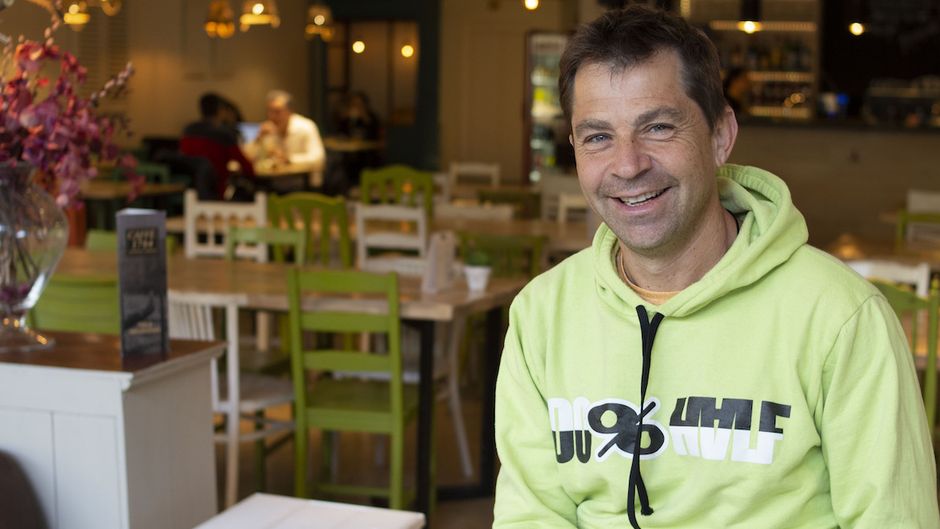 Daniel Requena, pastor and promoter of the Imperfect restaurant in Castelldefels. / All photos: Jonatán Soriano.
Daniel Requena, pastor and promoter of the Imperfect restaurant in Castelldefels. / All photos: Jonatán Soriano.
Seven years after its inauguration, the 'Imperfect' restaurant continues its particular path to perfection.
After overcoming some tough beginnings and surviving the impact of the pandemic that closed the hospitality industry during the months of lockdown, the charity restaurant project is now doing better than ever.
Daniel Requena, pastor of the Evangelical Church of Castelldefels, south of Barcelona, on which the restaurant depends, admits that "the situation is nothing like when we started". The project gained recognition among the local population, organisations and authorities.
One of the current challenges is to consolidate the project financially. Currently, 37% of the income comes from the activity of the restaurant. A 20% comes from subsidies and grants, 23% from the contribution of Castelldefels City Council, and another 20% from donations.
Spanish news website Protestante Digital talks with Requena about the journey of the restaurant charity project since its creation.
Question. What is the vision of 'Imperfect'?
Answer. It is a project that exists to get the vulnerable people out of the situation in which they live.
Its most important goal is to help vulnerable people, i.e. people who are struggling for reasons such as unemployment, depression, lack of resources, etc.
We should not only think of the person who is homeless or on the street, but of a broad spectrum of people who have a hard time at some point in their lives.
'Imperfect' accompanies people for a period of approximately 4 months, during which they are integrated into our restaurant as a project in which they can feel valued and useful and. In that way, the goal is to bring them back into society.
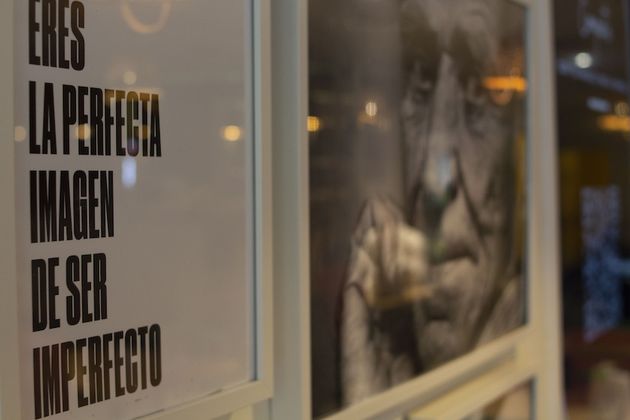
Q. How does this process look like in practice?
A. The City Council sends us people in a situation of vulnerability. They are not hired, but come as volunteers. They have a volunteer contract as defined by the Catalonia volunteers law, which states that they can't do more than 39 hours a month.
The City Council knows these people well and recommends them to us. They send us around 90% of the people who come to volunteer for this project.
We also make agreements with different entities, almost all from the third sector, so that people with disabilities can come to serve, or with the regional government's prison services for those who have committed minor offences and who do not go to prison but have to pay with community service.
Q. How do you follow up on the people who go through 'Imperfect'?
A. 99% of the people who go through this project find a job afterwards. The beauty of this project, in fact, is that there is a follow-up and the same people who were helped at a critical moment in their lives, later come to help others. That is a gift.
Q. In addition to the aim of helping people, the project has to ensure that it is sustainable.
A. We give away about 6,000 menus a year. Someone has to pay for that. With the menus we sell to costumers, there is not enough. Finding a balance has been difficult.
Today, after seven years, we are almost there. But we always need sponsors, business people, donors and organisations to support us.
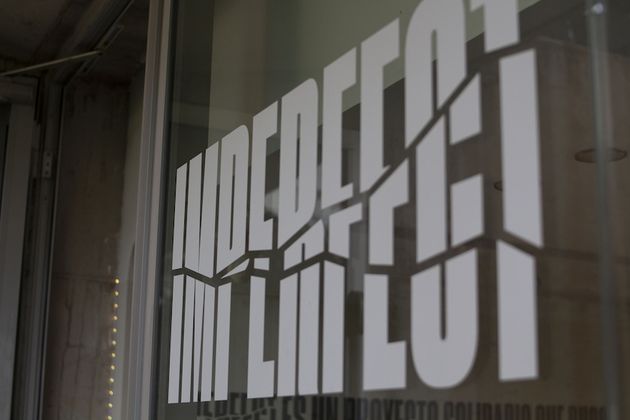
This project is self-sustaining. By selling menus, we manage to support other people who would be difficult to reach. It is a complex puzzle to fit together.
We had a big deficit in the first few years, and the Evangelical Church of Castelldefels had to support the project very much. Although it continues to do so, because we believe it is a vision of the church, now we are almost at the point of balancing the situation.
Q. A restaurant that gives away menus?
A. Those who become part of the project give us their work, and 'Imperfect' gives them training as well as their food.
During the months of volunteering, which vary depending on the person, we provide breakfast, lunch and dinner to whoever comes. It is during this time of accompaniment that we get to know them, talk to them and build a relationship. It is a time to be by their side.
We also offer occasional help when the City Council calls us to tell us that there are people who need food. We are increasingly looking for someone to fund the meals for these people.
For example, shortly after the war started in Ukraine, we launched a campaign to encourage people to pay for the meals of the refugees who came to the restaurant to eat.
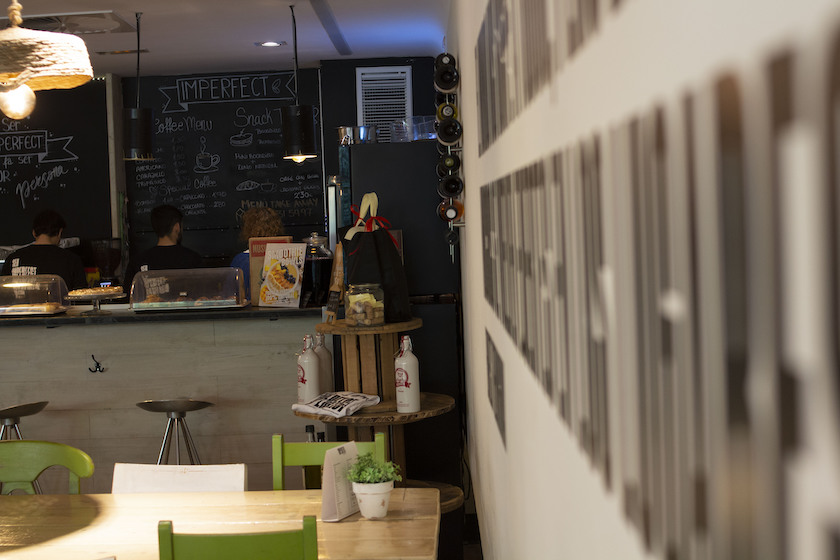
Q. How does a church get involved in a project like this?
A. I always tell the church that even if it would cost us more money to maintain the restaurant, we would have to find it. I would pay, and in fact we have paid, to have this.
Sometimes we think about mission but we are not able to put up the money. The church, in general, should invest in projects like this because in a very natural way we reach out to society.
People come, they receive messages and attitudes that have to do with the gospel and nobody feels attacked. It is penetrating our city.
Today we are known as the church that has a restaurant. Or as the restaurant that is in a church. At first people talked about a church that had a restaurant downstairs and now it's the other way around. They say: "Yes, there's the restaurant, but that's a church".
They help and come to us to offer us projects. It's a very nice synergy. The church has to have the vision to support and put money into the mission, because projects cost money.
Q. During the first months of the pandemic, the situation was particularly difficult for the hospitality business. You started a campaign to support the restaurant in the lockdown. How did you come out of it?
A. It was very hard because all restaurants had to close. One of our main sources of income was cut off. Moreover, the City Council said that since everything was closed and we didn't have people to help, they also cut off their help.
Castelldefels is a city where many people live in single rooms. So we had to show the Council that many of them, when they left their rooms, came here to get food because they couldn't cook at home.
People came here, mowed the lawn, did whatever work in our building during their free time, and then ate. Our average consumption was higher than usual, while our income was going down. That's when we launched the campaign so that those who wanted to, could help by paying for menus.
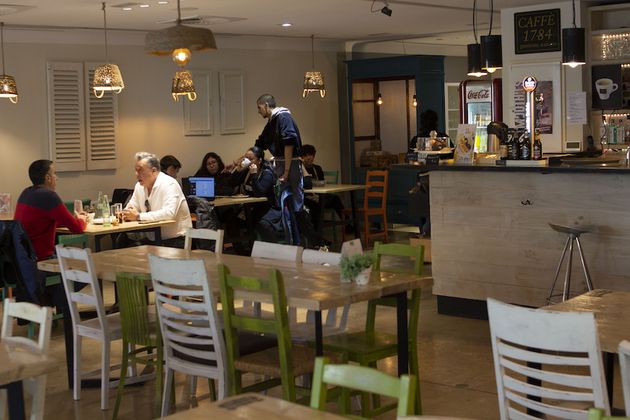
Q. How does 'Imperfect' interact with the rest of the city?
A. The restaurant is a beautiful space, both physically and for what's behind it. Even though we are not in the centre of town, people want to come.
It has become a place where they know they can eat well, and it also has an important social action, so that they share projects with us and use the space as a meeting room to share social projects.
We are now at a time when we receive many proposals for projects to join in. The church sees this as a gift of how, with time, the testimony and the good work of the project is making an impact in the city.
Q. How can the entrepreneurs reading this interview collaborate with 'Imperfect'?
A. Once or twice a year we hold a businesspeople dinner, we recently had one.
I told them that this project is sustained by three main pillars. The first is that people support it and it has a tax benefit. Supporting public utility entities, such as the Con Pasión Association, under whose umbrella 'Imperfect' is, helps in terms of taxation. Any donation is welcome. This should be the easiest way for an entrepreneur to collaborate.
But you can also help by hiring someone. We have projects to accompany the entrepreneur in the process of making the papers for people, and not only in the hospitality world.
We have lawyers, finance people and other kind of professionals who are having a hard time in life and use the restaurant as a way to overcome their crises.
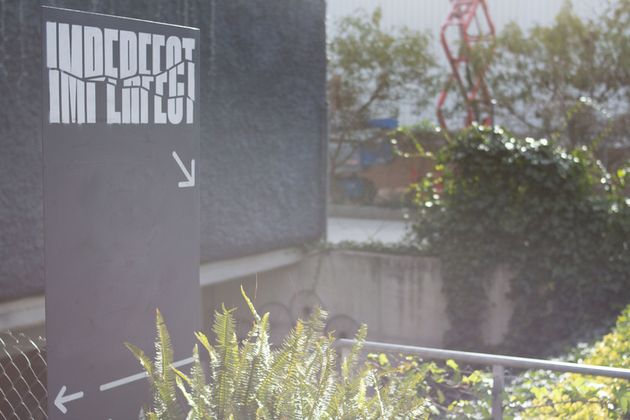
Finally, they can come for lunch. I read recently that in the next ten years no company will be able to sustain itself unless it helps on a social level. It is a good marketing tool to say that you are supporting a social project and to promote it.
Therefore, supporting 'Imperfect' is a good way to show your employees and the people under your authority that you support a social project and you are not just focused on making money.
Lately we've had some employers send their workers to spend a day in the restaurant and see the difficulties that other people are going through.
Q. Where does 'Imperfect' want to go from here?
A. As a pastor, I have a burden for my city and there are several engagement projects in Castelldefels that I am passionate about. If they go ahead it will be a gift to the church to be able to invest there.
Also, although I can't give too many details, I would love to see another 'Imperfect' in Spain. There is now a possibility in Madrid, and there was one near us that didn't happen.
We are in a moment of listening to God to see what he wants to do with the project. We are mainly thinking about our city, but we are open to the rest of Spain or outside the country.
This article was produced for the Líderes Empresariales section of Protestante Digital, an initiative of the Gospel, Economy and Business (Tres-E) group in Spain.
[donate]

Las opiniones vertidas por nuestros colaboradores se realizan a nivel personal, pudiendo coincidir o no con la postura de la dirección de Protestante Digital.
Si quieres comentar o